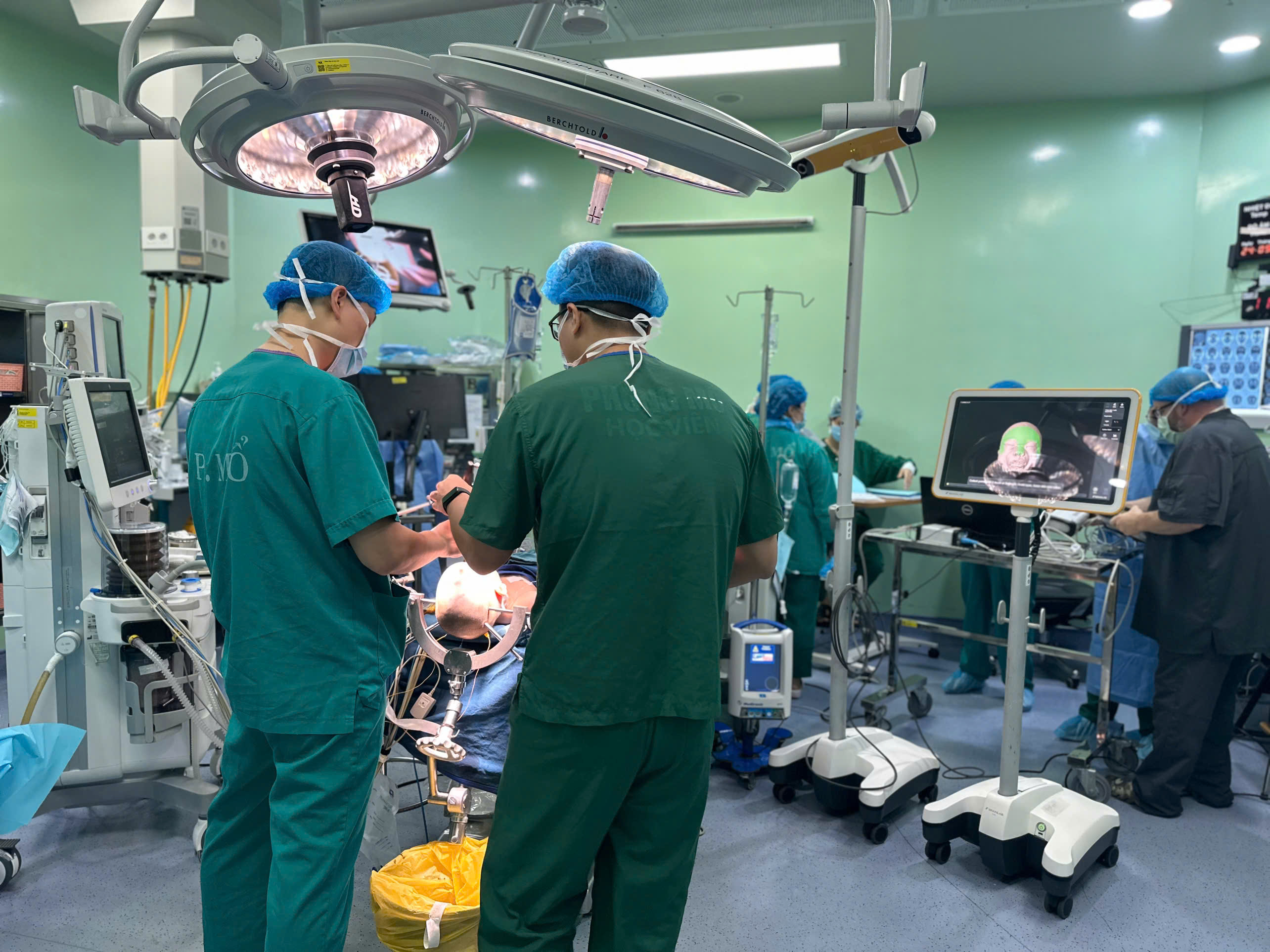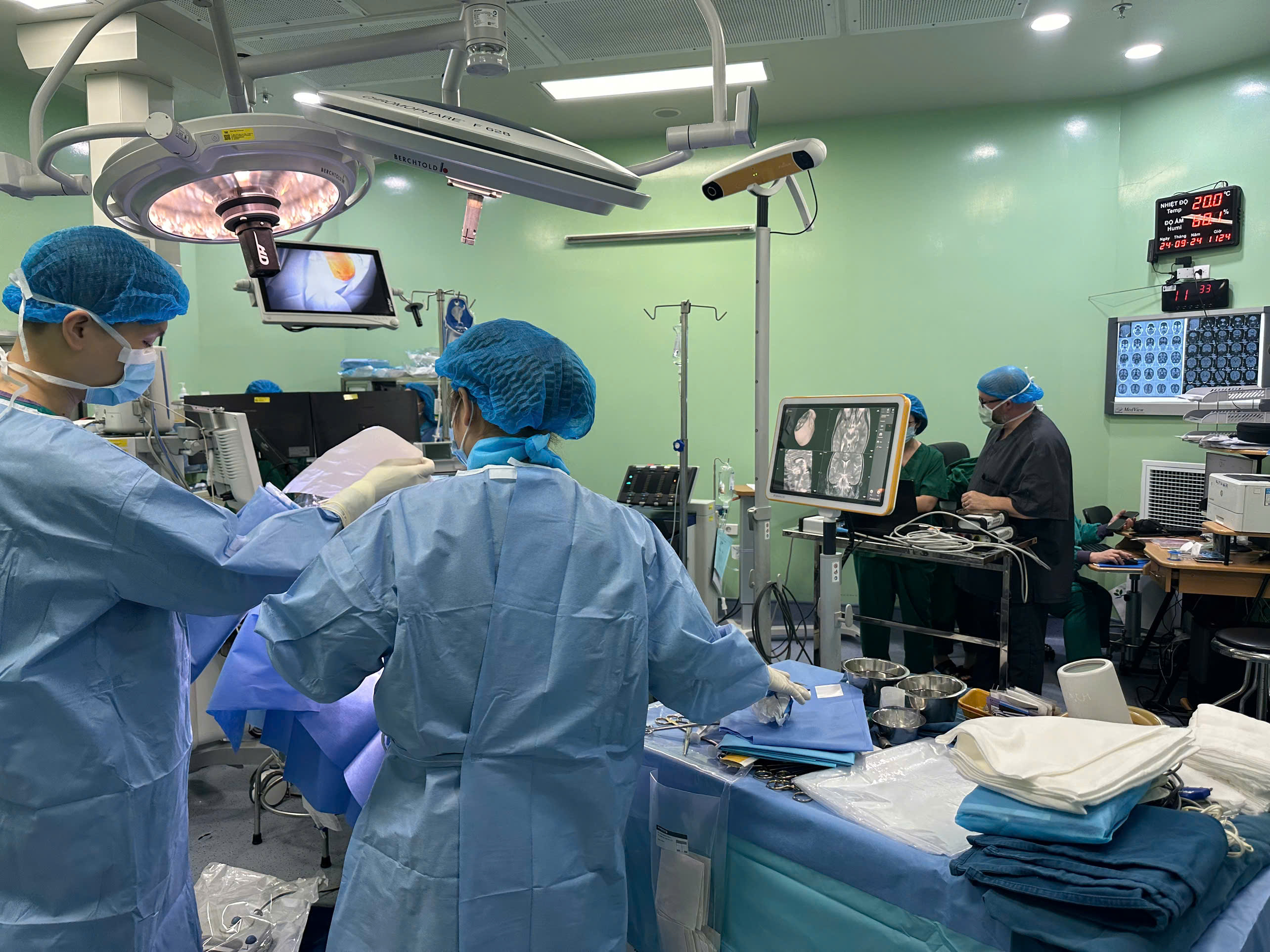The brain is an important organ of the body where the concentration of the nervous system helps us to perceive, understand, remember and operate the body. So just a very small lesion in the brain brings a significant change to people, even with tumors as small as a green pea (1-2mm) that can take anyone's life. In neurological - cranial diseases, the detection of such small lesions requires modern mechanical systems such as MRI, Cerebral Computed Tomography with or without the use of contrast agents.
Treatment intervention for minor cranial lesions has historically depended on medical treatment and monitoring of lesion development. Only when the lesions are clear and in places where they can be interfered with will surgical intervention be indicated. Because impacting on any area of the brain can leave heavy sequelae for patients.
Craniofacial surgery is one of the most difficult and complex surgeries. Especially for tumors, brain damage is located in a deep, small size during surgery that can damage healthy brain tissues or cannot find the exact tumor location, so the application of Navigation navigation system in cranial surgery is an effective solution that is being widely applied in medical units in Vietnam and around the world.
Patients who operate with the Navigation system give good results with accurate incisions, small incisions, minimal brain damage, quick surgery, and reduced anesthesia time.


4-year-old pediatric brain surgery at the Central Children's Hospital using the Model KICK 2 Navigation Station Neurosurgical Navigation System
Navigation navigation system is one of the advances of medicine in the world in high-precision surgeries with outstanding advantages such as:
The system is also equipped with the latest processors. In addition, thanks to the use of a spatial orientation system, every time a doctor needs to intervene in an area or organization, the anatomical structure in that area will be viewed, avoiding unnecessary damage.